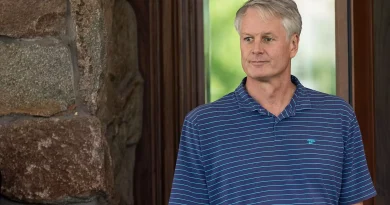Regulator: New York Taking Strong Steps in Bid to Become World’s “Crypto
In the absence of unified federal legislation on cryptocurrencies, New York is establishing its own comprehensive regulations for the sector as it looks to become the world’s crypto capital.
Adrienne Harris, superintendent of the New York Department of Financial Services (DFS), is playing a key role in this endeavor, and she says her approach is grounded in experience, not ideology.
“I have never been a believer that you should have ideology in financial regulation,” Harris said during a discussion at last week’s Consensus conference, held from May 14 to 16 in Toronto.
“I really am a firm believer that you can protect consumers and markets, look after the safety and soundness of companies and be good for business all at the same time. And we really seek to prove that out every day at DFS.”
Appointed in 2021, Harris described her stints in big law, the US Department of the Treasury, the Obama White House, Silicon Valley and academia. Her influence as a regulator has arguably been most deeply felt in crypto, where New York’s licensing regime — particularly its much-discussed BitLicense — has served as both a gatekeeper and a benchmark.
“There is unnecessarily tough, and then there’s necessarily tough,” Harris explained. “I think prior to me and my team coming in, things were probably unnecessarily tough … the team was under-resourced. There were maybe 30 people in the crypto unit. Now we have 60 people that are dedicated to virtual currency every day, all day.”
Under Harris’ leadership, the DFS has implemented an applications manual, instituted pre-application meetings and issued nine pieces of regulatory guidance. These reforms aim to demystify a process long criticized as opaque.
And while the BitLicense remains difficult to obtain, Harris believes the outcome justifies the rigor: “FTX, Voyager and Celsius didn’t pass our test, and therefore couldn’t do business in New York.”
This tough-but-fair regulatory stance has elevated New York’s position not only domestically, but also globally.
Even with various international counterparts, Harris told the Consensus audience that New York has become “the gold standard” in how virtual currencies are regulated. That international recognition is becoming increasingly formalized through initiatives like the DFS’ transatlantic regulatory exchange program with the Bank of England.
“They’ve sent us some senior staff. We’ve sent them some senior staff. It was really an arm-wrestling match to see who was going to get to move to London for six months to a year,” Harris joked. The program, which focuses on payments and cryptocurrencies, is already expanding to include other regulators in Europe and Asia.
Closer to home, Harris said the DFS is also working closely with Congress on stablecoin legislation.
“There isn’t a version of any of those bills — be it House or Senate, Rs or Ds — that don’t come to me and to the team to say, ‘Give us your feedback, give us…





